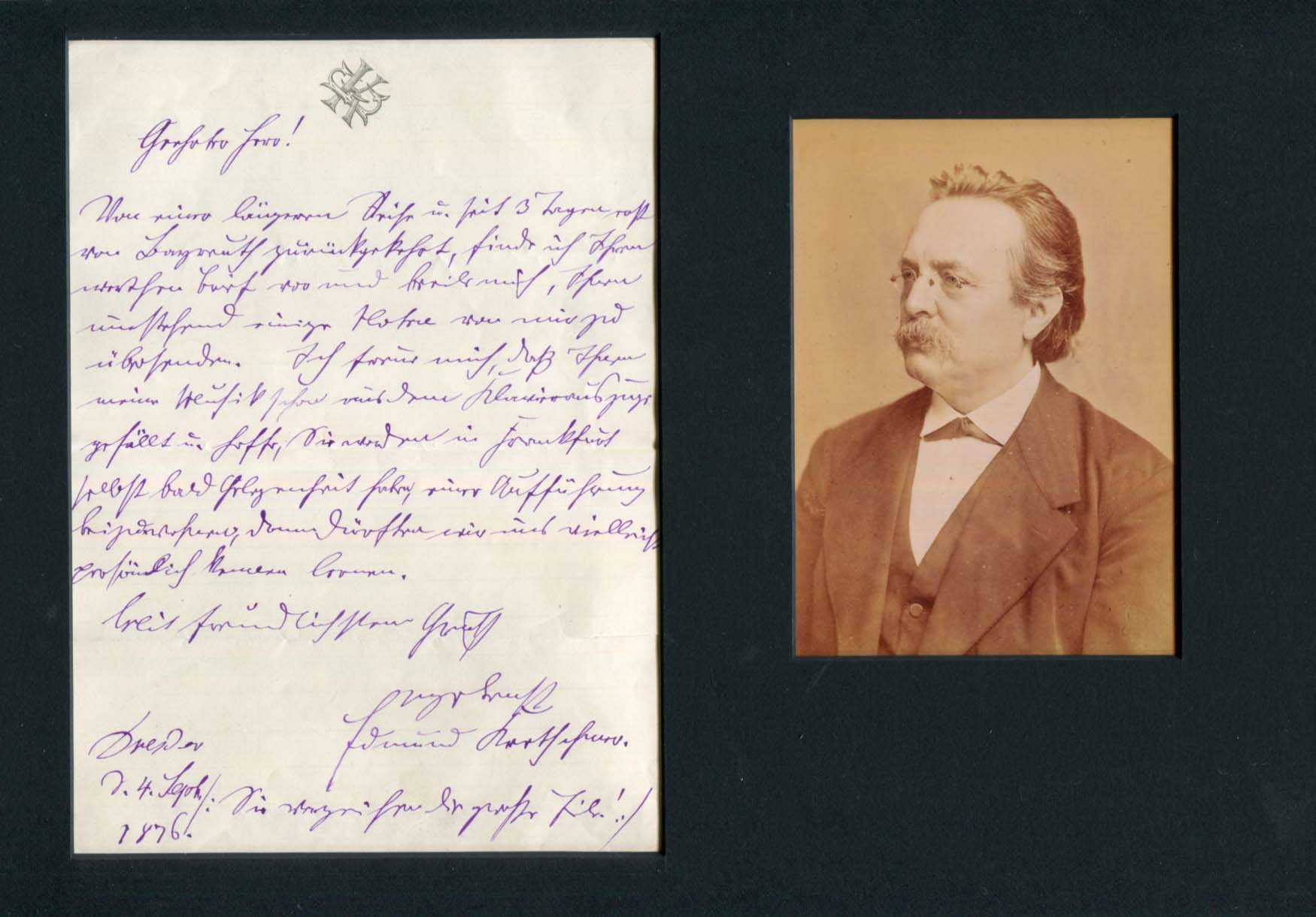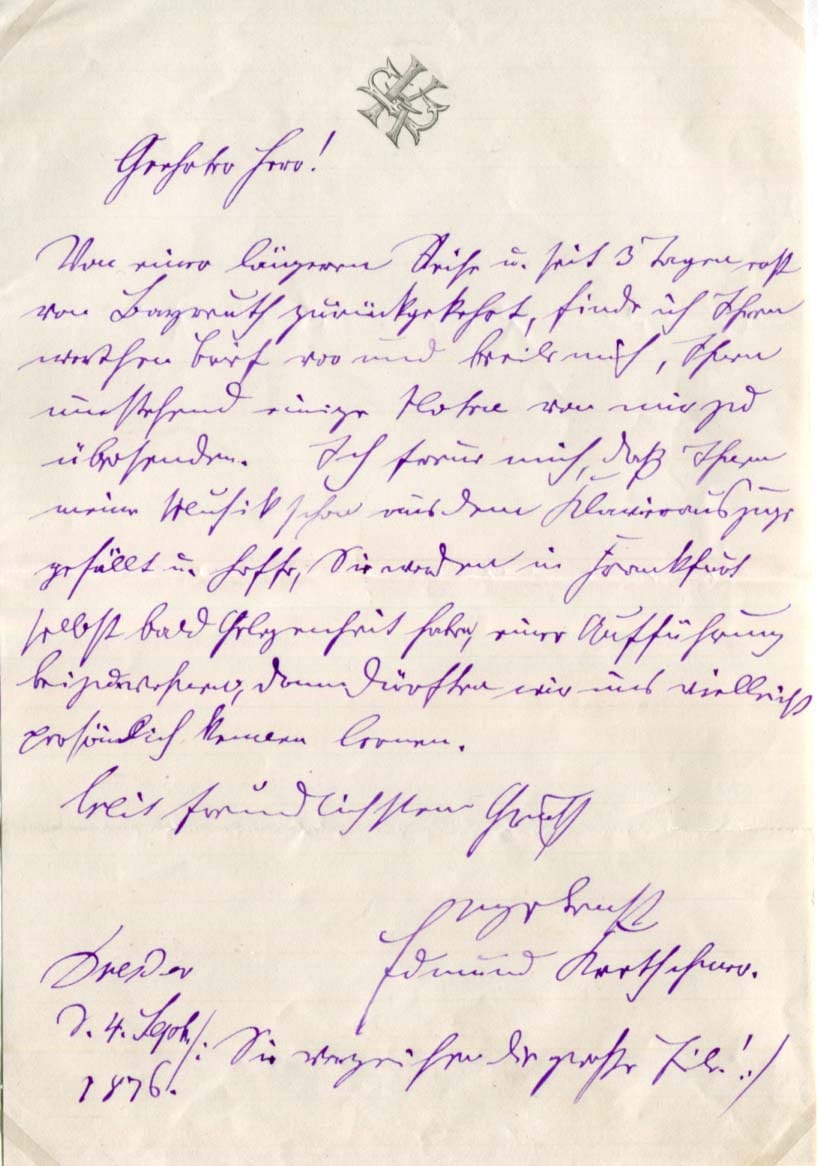Description
Autograph letter signed, one page, 5,5 x 7,75 inch, personal stationery, Dresden, 4.09.1876, reply letter to Alfred Löhrer - concerning performances and getting to know each other personally, written and signed in blue ink "Edmund Kretschmer", attractively mounted (removable) for fine display with a photograph, shows Edmund Kretschmer in a chest-up portrait (altogether 11,75 x 8,25 inch), with mild signs of wear - in fine to very fine condition. Accompanied by the original envelope.
In parts:
"[...] Ich freue mich, daß Ihnen mein Musikchor und der Klavierauszug gefällt u.[nd] hoffe, Sie werden in Frankfurt selbst bald Gelegenheit haben, einer Aufführung beizuwohnen, dann dürften wir uns vielleicht persönlich kennen lernen. [...]"
Translated:
"[...] I am pleased that you like my music choir and the piano reduction and hope that you will soon have the opportunity to attend a performance in Frankfurt, then perhaps we can get to know each other in person. [..]"
Further Information on the person
Profession:
(1830-1908) German organist and composer who worked for the Dresden Court and composed several operas and masses
Year of Birth: 1830
Certificate of authenticity
All of our pieces are sold with a Certificate of Authenticity. If a piece turns out to be wrong or if you do not like an autograph, you will get your money back for a lifetime.
Payment & Security
Your payment information is processed securely. We do not store credit card details nor have access to your credit card information.


